Comments and Issues
What are the ministers doing?
Published
2 years agoon
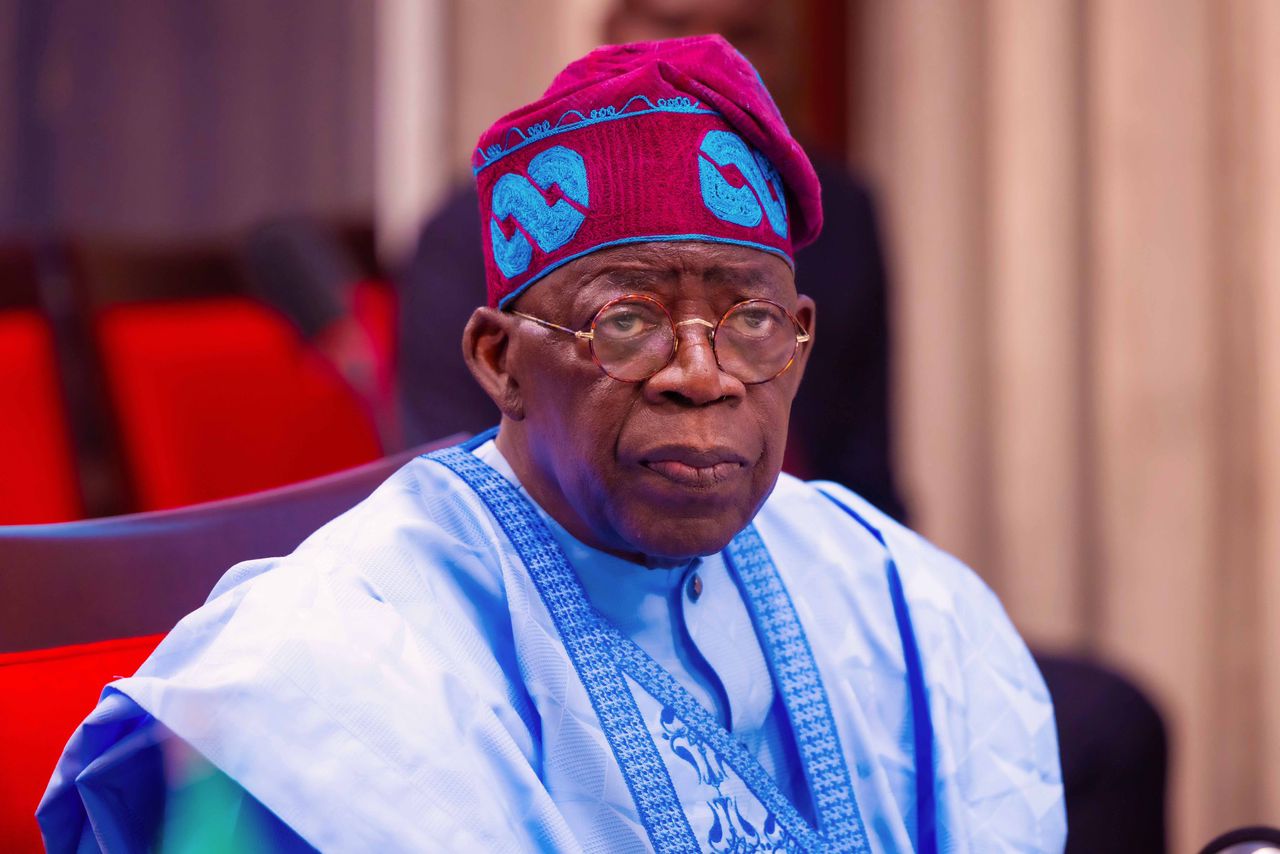
The current administration of President Bola Ahmed Tinubu came on stream nearly a year ago. As expected the nation’s mass media in line with section 22 of the Nigerian constitution of 1999 as amended, rightfully and legally serves as a vital bridge between the government and the populace, wielding significant influence over the political and socio-economic landscape of the nation. Its role in informing, educating, entertaining, and persuading the good people of Nigeria cannot be overstated, as it navigates the complex terrain of everyday political discourse to uncover truths and hold leaders accountable.
In assessing the government’s performance, the media serves as a necessary intermediary, providing insight and analysis that helps the public gauge the effectiveness and integrity of their elected officials. However, this role is not without its challenges, as political officeholders often seek to manipulate the media for their own gain, resorting to offensive tactics and public relations gimmicks to sway public opinion in their favor.
Yet, the media must tread carefully, recognizing the limits of its influence and the responsibility it bears in shaping, rather than misleading, public opinion. As debates and criticisms surrounding its performance persist, it remains essential for the media to uphold its integrity and commitment to truth-seeking, thereby fulfilling its indispensable role in Nigerian society.
As Nigeria marks the first anniversary of the Tinubu administration, it is an opportune moment to reflect on the journey thus far and the milestones achieved under the leadership of President Bola Tinubu. At the heart of this administration’s success lie the dedicated ministers who have worked tirelessly to implement the President’s vision for a renewed Nigeria. From bolstering national security to driving economic growth and cultural revitalization, these ministers have been instrumental in shaping the trajectory of our nation.
One such minister whose commitment has been exemplary is the Honourable Minister of State for Defence, H.E. Dr. Bello Mohammed Matawalle, MON. Dr. Matawalle’s unwavering dedication to ensuring the security and well-being of Nigerians has been evident in his tireless efforts to address security challenges comprehensively. His unrelenting commitment to a safer and more secure Nigeria has been a cornerstone of the Tinubu administration’s agenda.
Under the leadership of the Honourable Minister of State for Defence, H.E. Dr. Bello Mohammed Matawalle, MON, the Ministry has seen significant strides towards enhancing the security and well-being of Nigerians. Since assuming office on August 21, 2023, Dr. Matawalle has exemplified an unwavering commitment to his duties, aligning with the President’s Renewed Hope Agenda to address various security challenges plaguing the nation.
His dedication to fostering a safer and more secure Nigeria is evident through his multifaceted approach to tackling insecurity. His initiatives and policies have been pivotal in curbing threats across different domains, including land, sea, and air. Notably, he has championed inter-ministerial collaboration, recognizing the need for a holistic approach to combating insecurity. Through strategic partnerships and engagements with both domestic and international stakeholders, Dr. Matawalle has worked tirelessly to bring an end to insecurity in Nigeria.
Furthermore, Dr. Matawalle has prioritized the localization of military needs and equipment production through the Defence Industries Corporation of Nigeria (DICON). This initiative not only enhances Nigeria’s self-reliance but also contributes to the development of indigenous defense capabilities.
Despite these commendable efforts, there are areas where the Ministry of Defence could further improve. One such area is the need for enhanced synergy between defense and intelligence agencies to ensure more effective counterterrorism operations. Additionally, there is a necessity for increased investment in cybersecurity infrastructure to safeguard against emerging threats in the digital domain.
Overall, Dr. Matawalle’s tenure as Minister of State for Defence has been characterized by steadfast leadership and a relentless pursuit of national security objectives. His achievements underscore his commitment to serving the Nigerian people and upholding the integrity of the nation.
Similarly, the Minister of Arts, Culture, and Creative Economy, Ms. Hannatu Musawa, has been a driving force behind the revitalization of Nigeria’s creative sector. Under her leadership, the Federal Ministry of Arts, Culture, and Creative Economy has emerged as a beacon of innovation and inclusivity.
Minister Musawa’s visionary approach has led to significant achievements, including capacity-building initiatives, infrastructure development projects, and strategic partnerships with domestic and international stakeholders. Her commitment to aligning with the priorities of the Renewed Hope Agenda has been pivotal in advancing Nigeria’s cultural heritage and economic growth.
Since its establishment as part of President Bola Tinubu’s Renewed Hope Agenda, the Federal Ministry of Arts, Culture, and Creative Economy (FMACCE) has undergone a remarkable transformation under the dynamic leadership of Minister Hannatu Musawa.
Despite being relatively new, the Ministry has achieved several significant milestones within a short period, demonstrating its commitment to promoting Nigeria’s cultural heritage and leveraging the creative economy for national development. Under Minister Musawa’s stewardship, FMACCE has embarked on various initiatives aimed at fostering the growth and sustainability of the arts, culture, and creative sectors.
The Ministry has trained over 1,000 individuals in professional development programs within the creative sub-sectors, enhancing skills and expertise in the industry. Through public-private partnerships, FMACCE has initiated infrastructure renovation and construction projects, including the ongoing renovation of the National Theatre, in collaboration with the Central Bank of Nigeria and The Bankers’ Committee.
In the area of partnerships and collaboration, FMACCE has forged strategic partnerships with renowned international organizations such as the Recording Academy (Grammy’s) and the International Council on Monuments and Sites, facilitating knowledge exchange and collaboration in cultural preservation and promotion.
More so, the Ministry’s interventions have led to the creation of over 250,000 new jobs in the arts, culture, and creative sectors, contributing to Nigeria’s GDP growth and economic resilience.
Additionally, FMACCE has played a significant role in increasing Nigeria’s cultural influence and improving its brand perception globally. Through stakeholder engagement events and industry workshops, the Ministry has fostered dialogue and collaboration within the creative ecosystem, driving innovation and entrepreneurship.
Looking ahead, Minister Hannatu Musawa has set ambitious targets for FMACCE, including the creation of two million jobs by 2027 and a substantial increase in Nigeria’s GDP by 2030. These goals underscore the Ministry’s commitment to harnessing the potential of the creative economy as a catalyst for socio-economic development.
The achievements of FMACCE under Minister Hannatu Musawa exemplify the transformative power of the arts, culture, and creative economy in driving inclusive growth and national prosperity. With visionary leadership and sustained investment, the Ministry is poised to realize its ambitious goals and position Nigeria as a global leader in creative innovation and cultural excellence.
While celebrating these milestones, it is imperative to acknowledge areas where the administration can further improve. One such area is the Ministry of Youth Development, which is seen to be facing challenges of inactivity and incompetence under the leadership of Jamila Bio Ibrahim as Minister, and Ayodele Olawande as Minister of State.
The Ministry of Youth Development, under its current leadership, has been largely inactive and ineffective, failing to make any significant strides towards empowering Nigerian youth or addressing their needs. The minister in charge has demonstrated incompetence and a lack of vision, resulting in a stagnation of youth-focused initiatives and programs.
While youth development is crucial for the socio-economic progress of any nation, the Ministry has failed to devise innovative strategies or implement impactful policies to support this demographic. There is a notable absence of youth-oriented programs aimed at skills development, entrepreneurship, and employment generation.
Furthermore, the Ministry’s lack of visibility and engagement with youth-led organizations reflects a disconnect between the government and the youth population. This failure to effectively engage with stakeholders hampers the Ministry’s ability to understand and address the diverse needs and aspirations of Nigerian youth.
The Minister’s lack of vision and engagement represents a missed opportunity to empower Nigeria’s youth and harness their potential as drivers of socio-economic development. Moving forward, the Tinubu administration must prioritize revitalizing the Ministry of Youth Development, ensuring that it plays a proactive role in addressing the pressing challenges facing Nigeria’s youth population.
To revitalize the Ministry, there is a pressing need for competent and proactive leadership that prioritizes youth empowerment and participation. This includes the implementation of targeted initiatives to foster skill acquisition, entrepreneurship, and civic engagement among young people. Additionally, the Ministry must leverage technology and digital platforms to reach a broader audience and facilitate meaningful youth involvement in decision-making processes.
The Ministry of Youth Development must undergo significant reforms to fulfill its mandate of promoting the well-being and advancement of Nigerian youth. Without decisive action and visionary leadership, the Ministry risks further marginalizing this vital demographic, with far-reaching implications for the nation’s future.
As we commemorate the first anniversary of the Tinubu administration, let us not only celebrate the achievements of the past year but also recommit ourselves to the task of nation-building. With visionary leadership and collective effort, we can build a stronger, more prosperous Nigeria for future generations.
The milestones achieved by ministers like Dr. Bello Mohammed Matawalle and Ms. Hannatu Musawa serve as a testament to the potential of the Renewed Hope Agenda to transform our nation’s trajectory. Together, let us continue to strive for progress and prosperity as we chart a course toward a brighter future.
To conclude this first reflection on these set of ministers under President Bola Ahmed Tinubu’s administration, I will draw few lessons from a piece titled “The philosophy of good governance”, authored by Rajyogi Brahmakumar Nikunj which was Last Updated on 14 May 2023.
The author wrote that good governance is not an alien concept for a country like India, as even today Ram Rajya connotes the highest achievable level of good governance.
The author further stated that if your actions inspire others to dream more, learn more, do more and become more, you are a leader. -John Quincy Adams
Good governance is not an alien concept for a country like India, as even today Ram Rajya connotes the highest achievable level of good governance.
We must understand a fact that good governance is impossible without statesmen who function according to dharma and spirituality. Aristotle had said that ‘An ideal state would be the one that has a Philosopher King.’ What he, perhaps, meant was that a country which has a person of spiritual wisdom as its head, would deliver better governance.
The writer said that the rationale behind this statement is that it is based on the concept that the state is a family of families. The king, being the head of the state, should consider himself as the father figure or the head of the greater family that is constituted of hundreds of thousands of families. The head of a family runs the affairs of the family with love and care. He is the provider, the sustainer, the protector, the guide, the elderly person who inspires, builds confidence, promotes the well-being of all without prejudices and discrimination and runs the day-to-day affairs wisely, safely, smoothly and to the satisfaction and betterment of all.
Bhagavad Gita says that whatever a leader does, the people will follow and whatever standards or example he sets, people in general will follow. It is therefore imperative; that leaders need to perform their duty in governing effectively for the sake of educating the people in general and lead their countrymen by being an example. This has a great implication for sustainable development as it is a must for leaders to practice what they preach.
In the same breath, Nigerians expect that ministers working for Nigerians appointed by President Bola Ahmed Tinubu must be patriotic, respect human rights of citizens, adhere strictly to the constitutional norms of good governance, accountability, transparency and must see their positions not as opportunities for personal aggrandisement or enrichment but that of selfless service to the country and importantly to the people of the Federal Republic of Nigeria.
*EMMANUEL ONWUBIKO is head of the HUMAN RIGHTS WRITERS ASSOCIATION OF NIGERIA and was NATIONAL COMMISSIONER OF THE NATIONAL HUMAN RIGHTS COMMISSION OF NIGERIA.
Trending

 Health6 days ago
Health6 days agoPolice open probe eight months after twin toddlers’ deaths following vaccinations
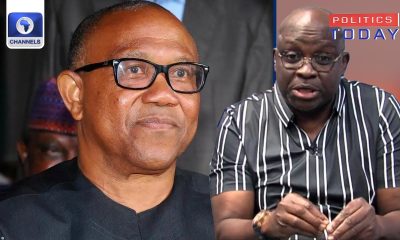
 Latest1 week ago
Latest1 week agoFayose warns ADC risks collapse if Peter Obi not fielded in 2027

 Football1 week ago
Football1 week agoCAF launches disciplinary investigations into AFCON quarter-final incidents
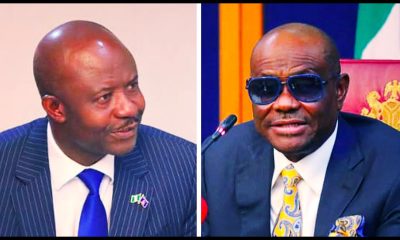
 Latest1 week ago
Latest1 week agoRivers Police invite ex-SSG Danagogo over alleged assassination plot against Wike
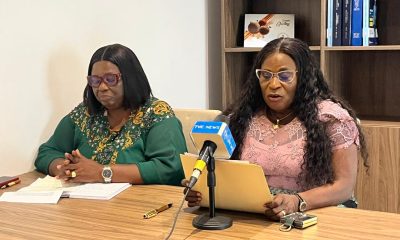
 Latest5 days ago
Latest5 days agoTwo more Rivers lawmakers call for halt to Fubara impeachment

 Health6 days ago
Health6 days agoExpert warns smokers, people with high cholesterol face elevated diabetes risk
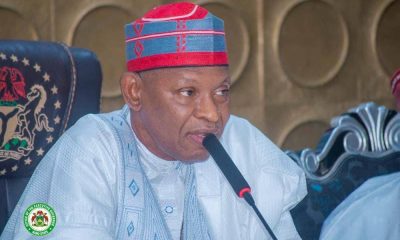
 Latest1 week ago
Latest1 week agoHeavy security presence at Kano govt house sparks defection rumours around Gov. Yusuf
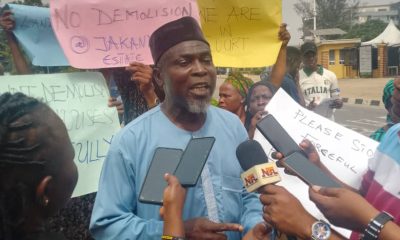
 News6 days ago
News6 days agoJakande Estate residents allege illegal demolition, tasks Sanwo-Olu

